Boise Applied Biomechanics of Infants (BABI) Laboratory
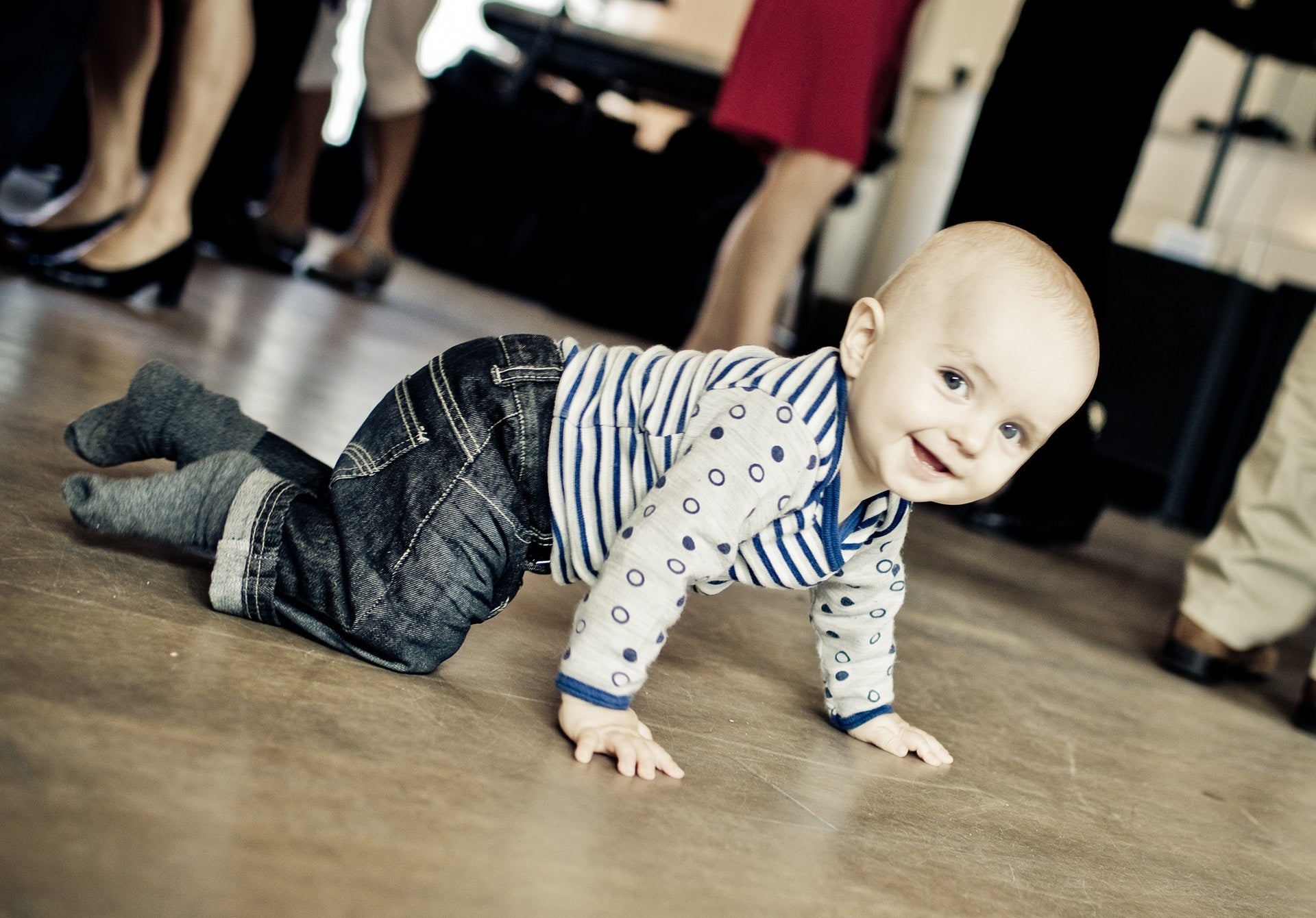
Director: Erin Mannen, Ph.D.
Yanke Research Park, 220 E. Parkcenter Blvd., Boise, ID 83706
ErinMannen@boisestate.edu
The BABI Lab at Boise State University focuses on understanding how babies move and use their muscles, and what that means for safety and musculoskeletal development. We work closely with clinicians and industry to ask relevant questions to improve the health and well-being of babies.
Ceramic Microelectrical Mechanical Systems (C-MEMS) Laboratory
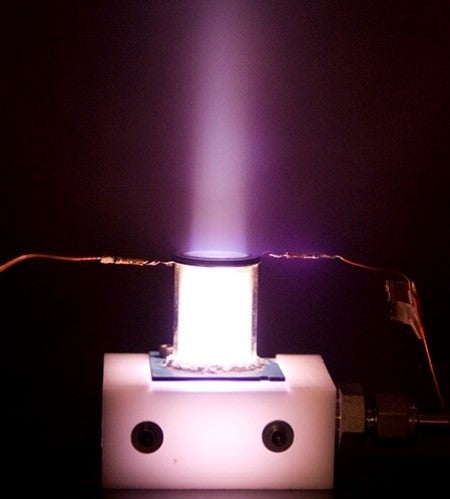
Director: Don Plumlee, Ph.D., P.E.
Micron Engineering Center, Room 415
dplumlee@boisestate.edu
The C-MEMS lab uses Low Temperature Co-fired Ceramics (LTCC) to manufacture prototypes for research purposes. This lab is supervised by Dr. Donald Plumlee and run by undergraduate research assistants at Boise State University. The C-MEMS lab provides services for design to fabrication of many different possible applications of LTCC. A few of the lab projects include work in microfluidic channels, thermoelectric generators, and plasma microthrusters.
Computational Biosciences Laboratory (CBL)
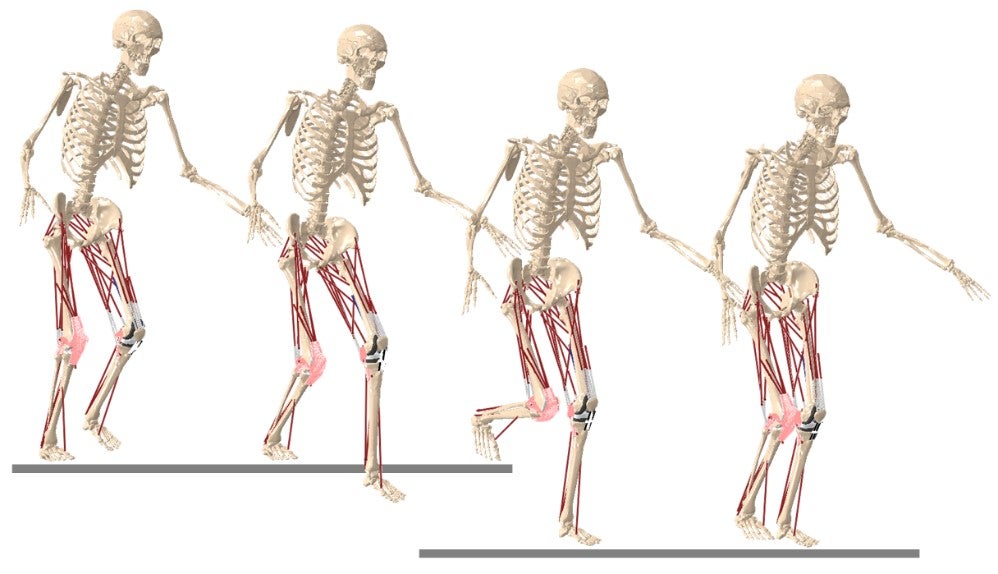
Director: Clare Fitzpatrick, Ph.D.
Micron Engineering Center, Room 402
clarefitzpatrick@boisestate.edu
Research at the CBL focuses on applying computational models to understand the mechanisms of disease, injury and degeneration, and designing targeted treatment options and surgical interventions to address clinical issues and athletic performance. We work in close collaboration with surgeons and experimentalists to gather data to develop and validate our models, and then use these models to predict how the body will behave during different activities, or how it may change as a result of injury or surgical intervention. The overall objective of this work is to improve quality of life and functional performance.
Computational Materials Design (CMD) Laboratory
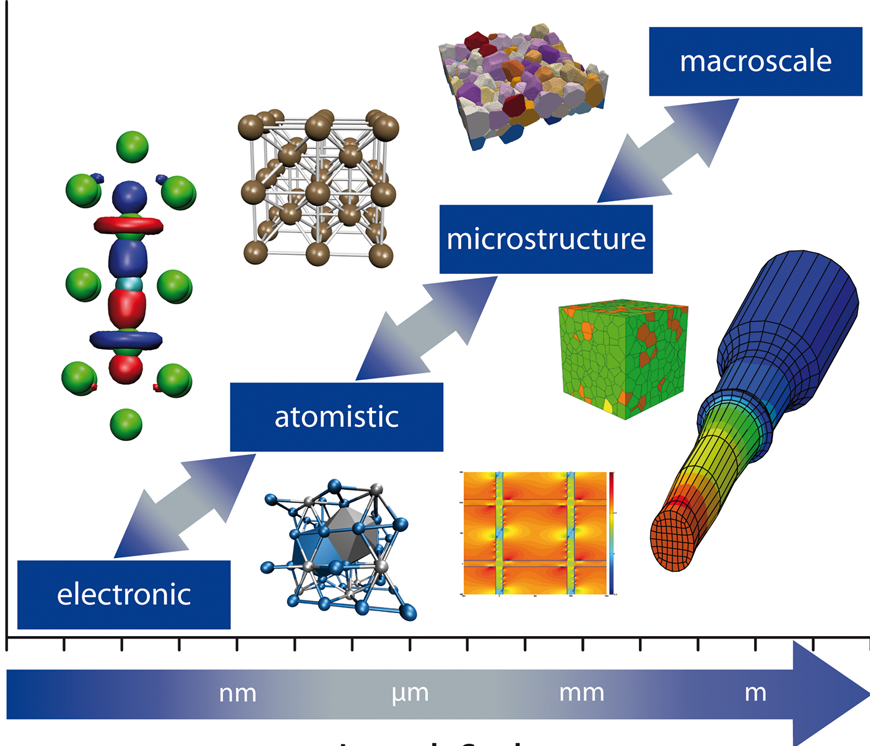
Director: Mahmood Mamivand, Ph.D.
Micron Engineering Center, Room 408
mahmoodmamivand@boisestate.edu
At the CMD lab we develop physics-based and data-driven models to understand the inter-relationships between chemistry, processing, structure, and property in materials. The goal of the CMD group research is to accelerate the process of materials design and discovery through advancing the science and engineering of materials microstructure. Our research covers a wide range of materials including aerospace materials, energy materials, and biomaterials.
Energizing Engineering Education (E3) Laboratory
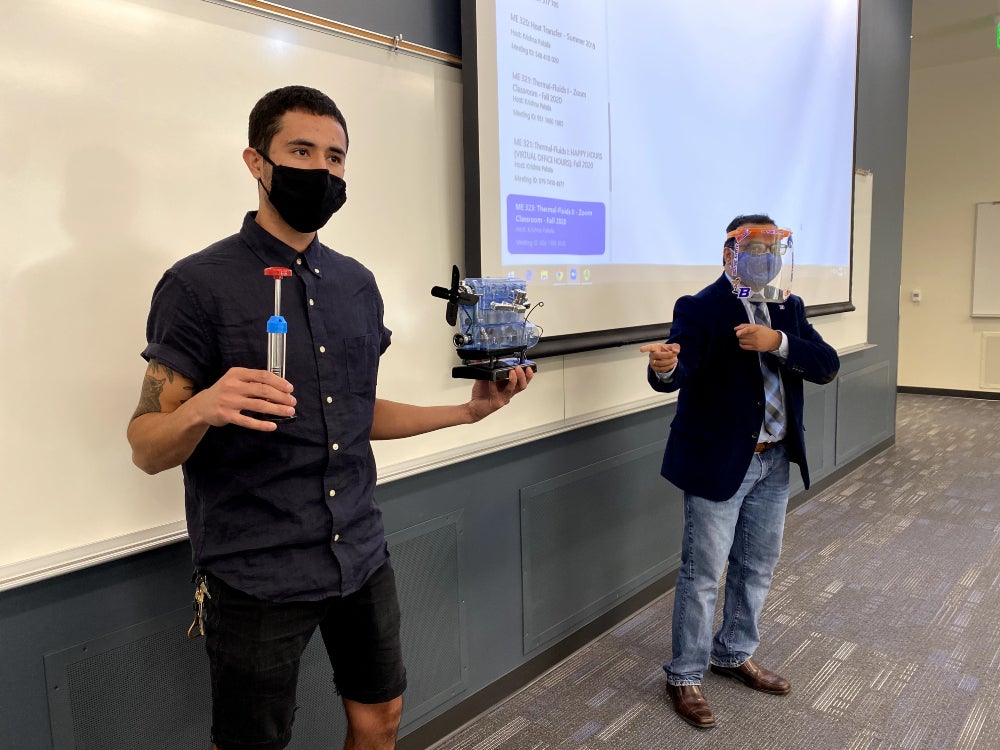
Director: Krishna Pakala, Ph.D.
RUCH 203
krishnapakala@boisestate.edu
The E3 lab is focused on engineering education research serving as an engine to explore novel classroom techniques that can help the professional formation of engineers through understanding of the formal and informal education and value systems by which people become engineers. Our lab’s research focus is in innovative teaching and learning strategies, use of emerging technologies, and mobile teaching and learning strategies. Our lab’s goal is to transform engineering education to support student success inside and outside the classroom, by developing evidence based, practical approaches that can be widely adopted by the engineering education community.
Mechanical Adaptations Laboratory (MAL)
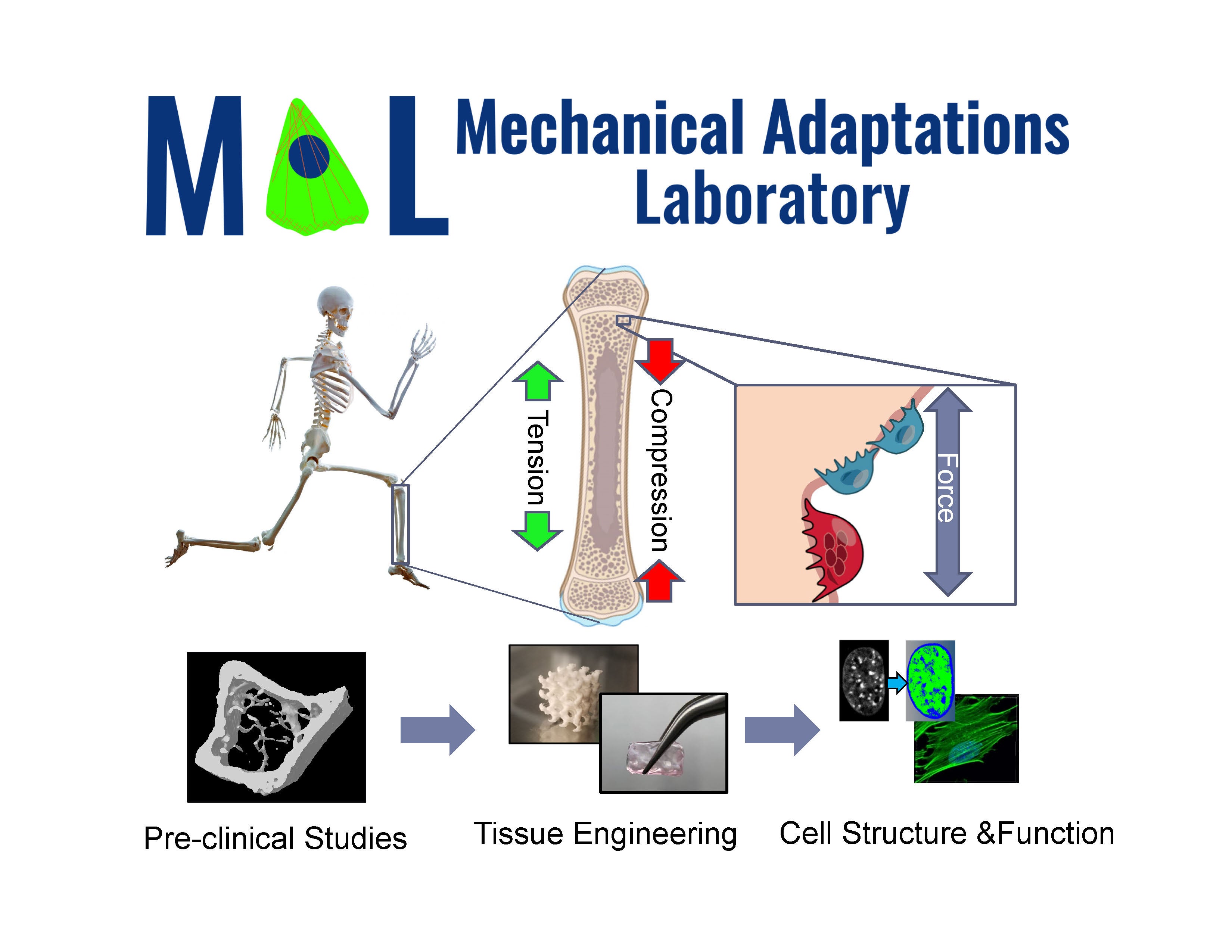
Director: Gunes Uzer, Ph.D.
Micron Engineering Center, Room 313
gunesuzer@boisestate.edu
Studies in MAL are directed towards understanding how changes in the tissue mechanical environment in relation to exercise, injury, aging and disuse regulate structural adaptations in cells to control signaling and eventually fate decisions in stem cells.
Northwest Tissue Mechanics (NTM) Laboratory
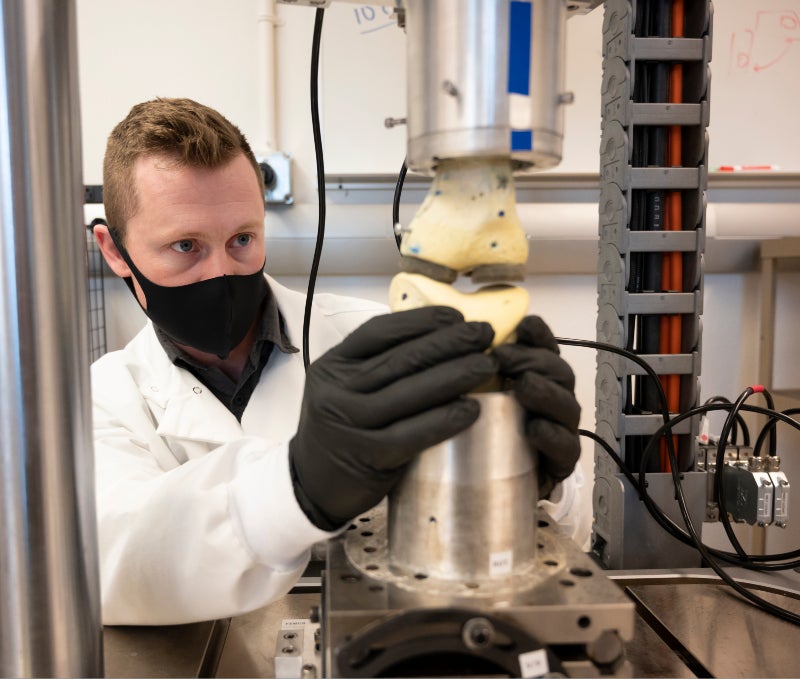
Director: Trevor J. Lujan, Ph.D.
Micron Engineering Center, Room 314
NTM@boisestate.edu
A core focus of the NTM laboratory is to investigate how biological tissue responds to force during injury and repair, and to then translate this research into innovative medical solutions that are effective, practical and affordable. Our research utilizes experimental and computational methods, and we engage in interdisciplinary collaborations with biologists, engineers and clinicians.
Robot Control Laboratory (RCL)
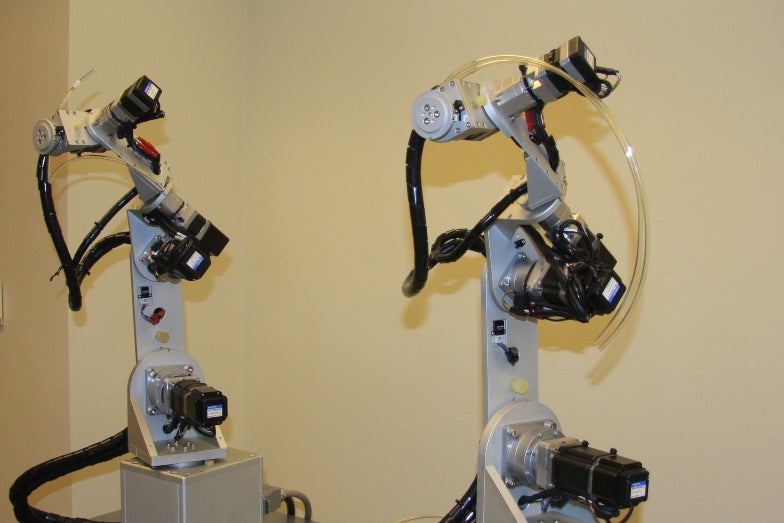
Director: Aykut C. Satici, Ph.D.
Micron Engineering Center, Room 103
aykutsatici@boisestate.edu
The mission of the RCL is to enable robots to efficiently and robustly perform desired manipulation and locomotion tasks by designing low-level feedback control and estimation algorithms. This avenue of research lies in the intersection of dynamical systems, robotics, control, and applied mathematics. A core focus of our laboratory is to investigate how to perform manipulation with multi-agent robotic systems, devising robustly stabilizing controllers for hybrid mechanical systems, such as robots in intermittent contact with the environment. Our research is theoretical and experimental and we engage in interdisciplinary collaborations with biologists (bio-inspired robotics), engineers, and mathematicians.
Smart Materials and Systems (SMS) Laboratory
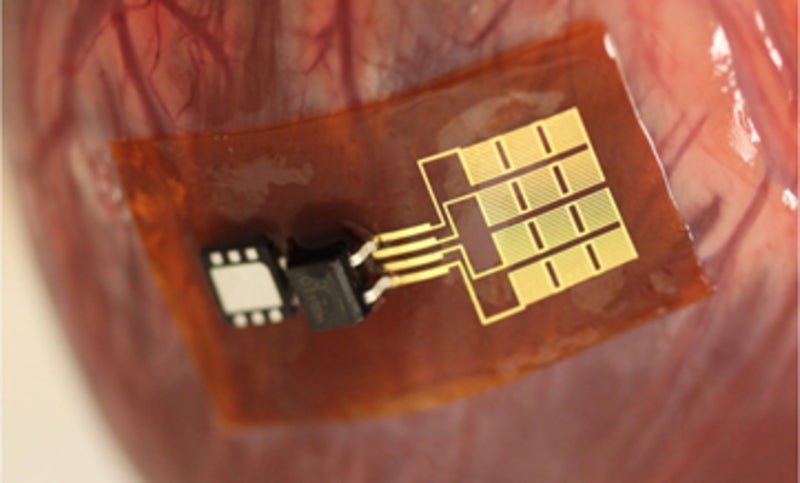
Director: Zhangxian “Dan” Deng, Ph.D.
Micron Engineering Center, Room 305
zhangxiandeng@boisestate.edu
The overall objective of the SMS Lab is to investigate the potential of advanced smart materials in structural health or human health monitoring. The on-going projects cover both fundamental research and applied research. The fundamental research includes Multiphysics modeling and experimental characterization of new smart materials. The applied research involves wireless sensor development and mechanical energy harvesting. Future projects will target the integration of smart materials and novel 2D/3D printing technologies.
Thermal Transport and Solar Energy (TTSE) Laboratory
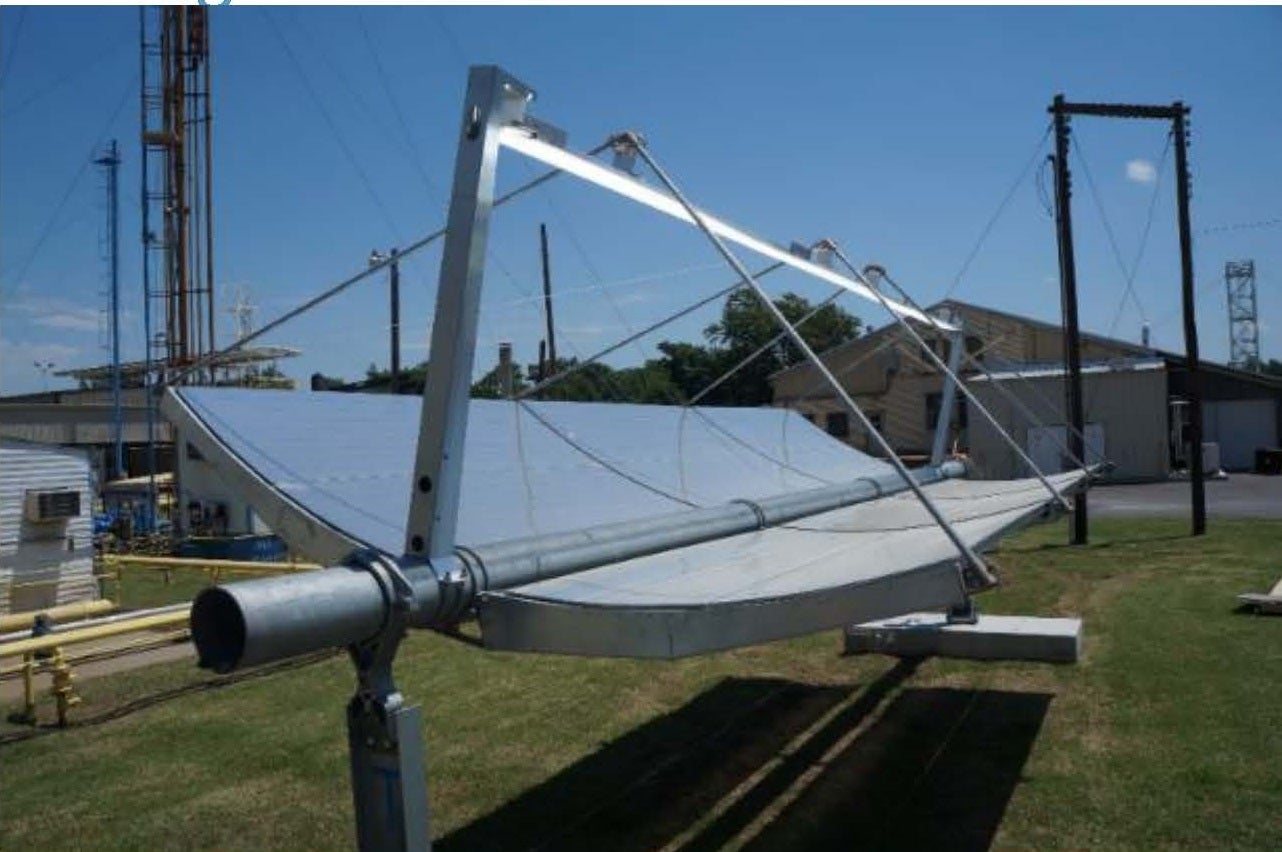
Director: Todd Otanicar, Ph.D.
Micron Engineering Center, Room 210
toddotanicar@boisestate.edu
The TTSE Lab is focused on the intersection of thermal and mass transport with a variety of different energy systems. Our research has investigated radiative properties of nanoparticles, erosion in high temperature environments, desalination, and the design of hybrid thermal/photovoltaic solar collectors.
Center for Orthopaedic and Biomechanics Research (COBR)
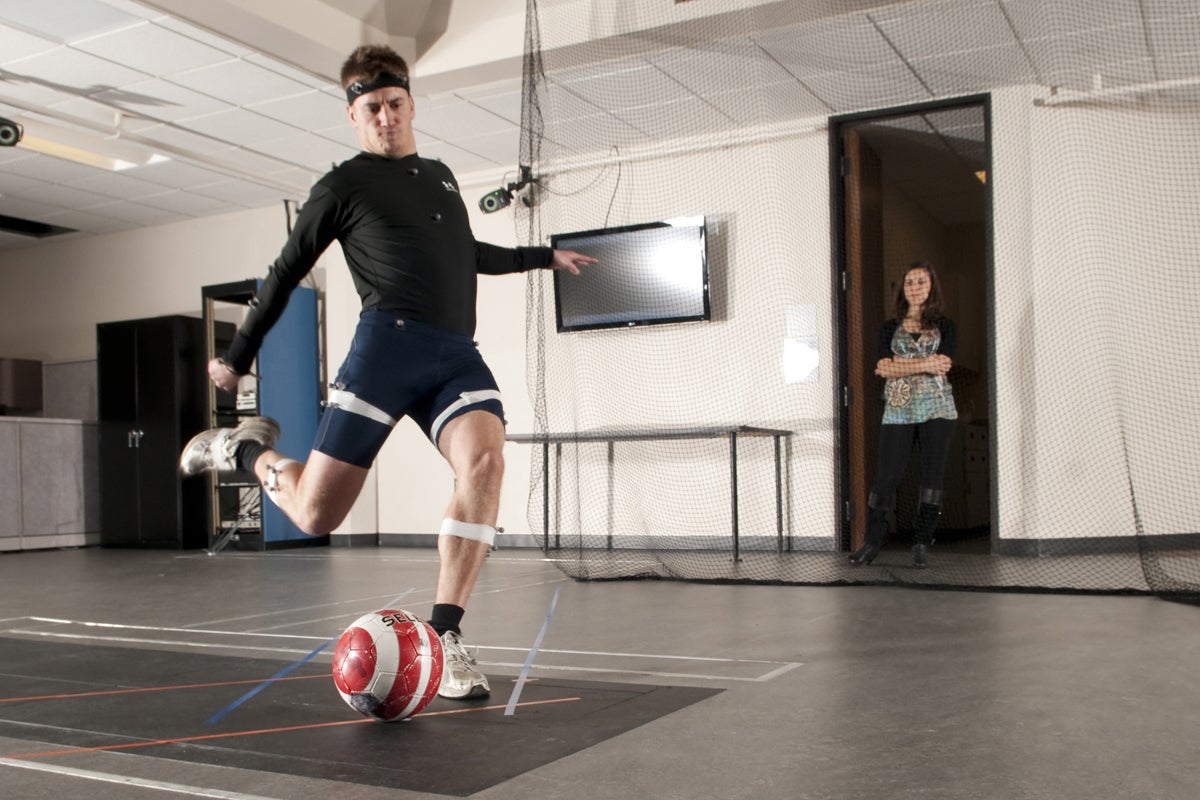
Yanke Research Park, 220 E. Parkcenter Blvd., Boise, ID 83706
(208) 426-5614
cobr@boisestate.edu
COBR is a partnership between the Department of Mechanical and Biomedical Engineering and the Department of Kinesiology.
The mission of COBR is to advance understanding of the mechanical and neuromuscular characteristics of human movement through basic science, engineering, clinical research and education.
Industrial Assessment Center (IAC)
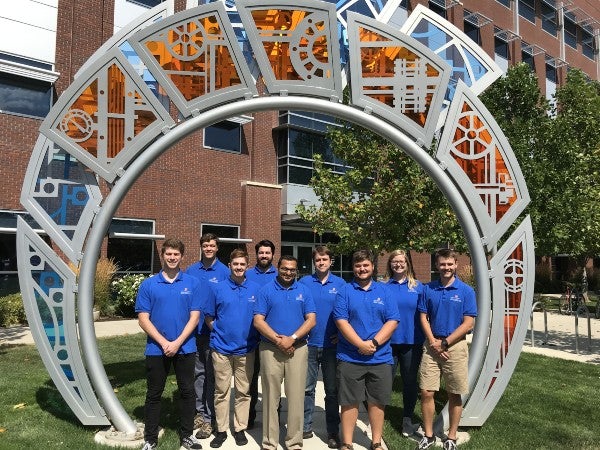
Director: Krishna Pakala, Ph.D.
RUCH 203
krishnapakala@boisestate.edu
The Department of Energy’s Industrial Assessment Center (IAC) provides free energy, productivity, and waste assessments to small and medium sized industrial facilities by students mentored by faculty.
Theodossiou Lab
Director: Sophia Theodossiou, Ph.D.
sophiatheodossiou@boisestate.edu
The Theodossiou Lab will use natural and synthetic biomaterials along with human and non-human stem cells to develop 3D models of musculoskeletal development and disease, with the ultimate goal of regenerating musculoskeletal tissues following injury or disease.
Research in the Theodossiou lab combines engineering, biology, and materials science to understand how mechanical and biochemical signals drive musculoskeletal development, maturation, and disease. We will use various materials and custom, 3D printed bioreactors and scaffolds to understand how biomechanical cues can be harnessed to regenerate and repair musculoskeletal tissues.
Da's Lab
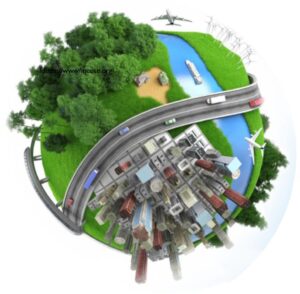
Director: Daicong Da, Ph.D.
Micron Engineering Center, Room 408
Da’s Lab is committed to advancing materials and structures that contribute to energy conservation and the overall quality of life. Through an interdisciplinary approach that combines computational and experimental research, we explore the complex interplay between mechanics, materials, design, and data science. By investigating various physical phenomena across different length scales, we aim to enable multifunctional materials and structures with dramatically enhanced or entirely new properties. Leveraging state-of-the-art manufacturing techniques, we strive to deliver tangible, real-world impact.